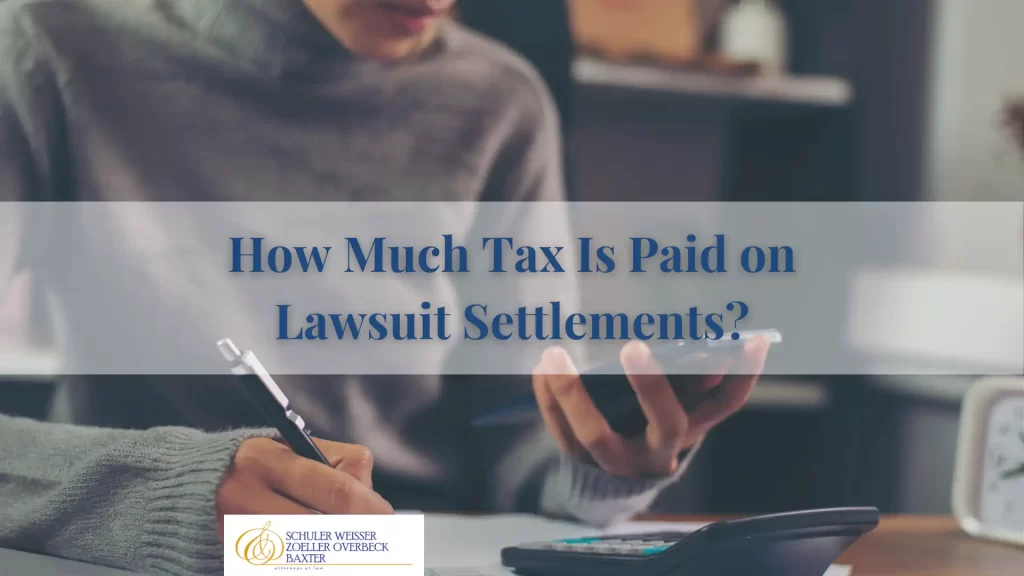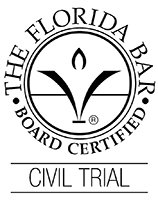Are Lawsuit Settlements Taxable In Florida?

Lawsuit settlements can result in significant financial gains for the recipient. However, some or all of this sum might be subject to taxation. In this blog post, we’ll discuss the tax implications of lawsuit settlements, including the types of settlements that are taxable. We’ll also discuss federal and Florida state tax rules that may apply.
Types of Taxable Lawsuit Settlements
Not all lawsuit settlements are taxable. The taxability of a settlement depends on the nature of the claim that led to the settlement. In general, settlements for physical injury or sickness are non-taxable, whereas settlements for other claim types are taxable.
The following types of settlements are considered taxable:
- Settlements for lost wages or lost income
- Settlements for emotional distress or mental anguish that are not related to a physical injury or sickness
- Settlements for breach of contract or other business disputes
- Punitive damage settlements
One thing to keep in mind here is that if a settlement includes both taxable and non-taxable damages, only the taxable portion of the settlement is subject to tax. For example, in a settlement for both physical injuries and punitive damages, only the punitive damages portion of the award would be subject to tax. The physical injuries portion of the award would remain tax-free.
Federal Tax Rates for Lawsuit Settlements
Lawsuit settlements are considered taxable income by the Internal Revenue Service (IRS), and the recipient must report them on their federal tax return. Federal tax owed on a settlement relies on the recipient’s tax bracket, shaped by their annual taxable income.
As a person’s income increases, they move progressively into higher tax brackets. A settlement is part of a recipient’s taxable income for the tax year in which they receive it unless the settlement falls under an exception. Hence, a tax settlement recipient may find their award propelling them into a higher tax bracket, increasing their tax liability.
Some expenses related to the lawsuit, such as attorney’s fees and court costs, may be deductible. Deductible costs can reduce the taxable portion of the settlement. You should consult a tax professional to determine which expenses are deductible and how to claim those deductions.
Florida State Tax Rates for Lawsuit Settlements
If you’re a resident of Florida and receive a settlement in a lawsuit, you may be subject to state taxes on part or all of the settlement amount. To report income correctly and pay the right taxes, you must be aware of Florida state tax rates for settlement proceeds.
Florida doesn’t have a state income tax, so settlements received for any type of claim, including lost wages, emotional distress, breach of contract, and punitive damages, are not subject to state income tax. This means that residents of Florida do not have to pay state taxes on their lawsuit settlements.
With that said, you should know that while Florida doesn’t have a state income tax, it does have other taxes that may apply to settlement proceeds. For example, if the settlement includes an award of real property, the recipient might need to pay property taxes on the value of the property. Additionally, sales tax may apply to the purchase of goods or services with settlement proceeds.
Don’t forget to consider the tax implications of the settlement at the federal level, as lawsuit settlements are taxable income and subject to federal income tax.
Deductible Expenses
 In some cases, the recipient of a lawsuit settlement may be able to deduct certain expenses related to the settlement. These expenses may include attorney’s fees, court costs, and other expenses incurred in connection with the lawsuit.
In some cases, the recipient of a lawsuit settlement may be able to deduct certain expenses related to the settlement. These expenses may include attorney’s fees, court costs, and other expenses incurred in connection with the lawsuit.
To claim these deductions, the recipient must itemize their deductions on their federal tax return. A qualified tax professional will be able to determine which expenses are deductible and how to claim the deductions.
Schuler, Weisser, Zoeller, Overbeck & Baxter P.A. Is Here to Help
Consulting a tax professional or checking with the tax authorities to determine the tax implications of a lawsuit settlement will put you a step ahead come tax season. A tax professional can help ensure that the recipient of a settlement is in compliance with the tax laws and can take advantage of any deductions or credits that may be available.
If you need legal counsel regarding the lawsuit or settlement process, the experienced attorneys at Schuler, Weisser, Zoeller, Overbeck & Baxter P.A. are here to help. Get started today by giving us a call at (561) 689-8180 or by contacting us online. A dedicated member of our team will provide you with a free consultation.
Related Reading:










